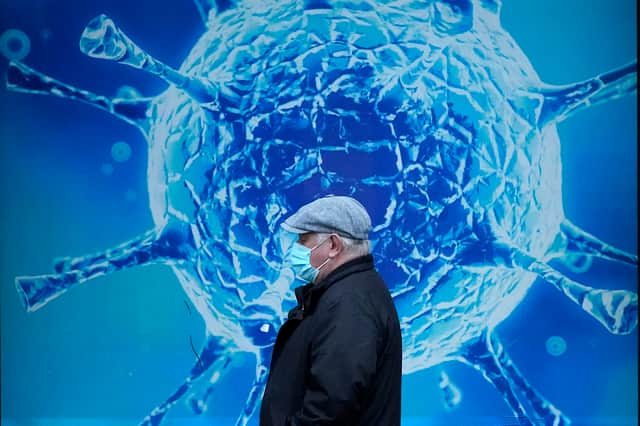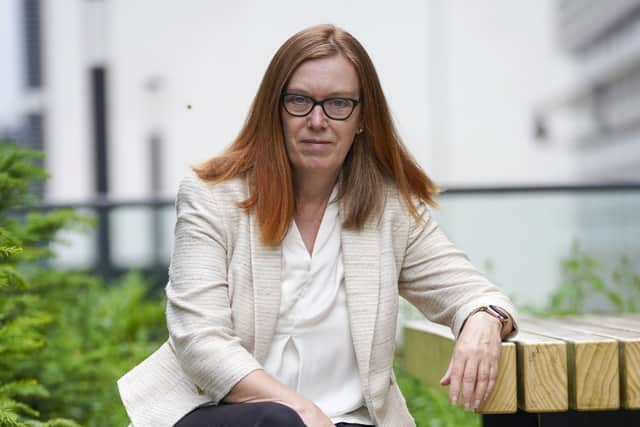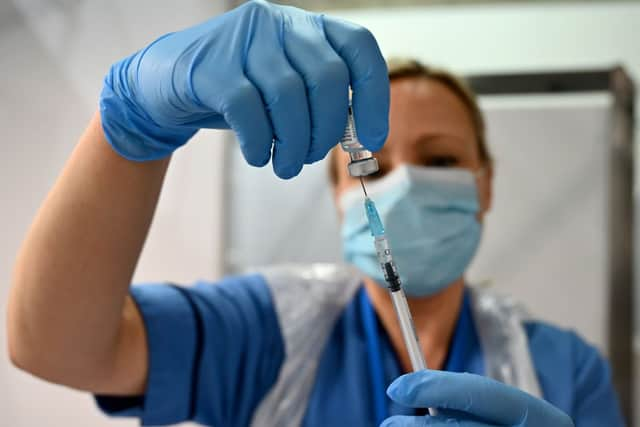Covid vaccine inventor warns next virus pandemic after Covid ‘could be more lethal’


One of the inventors of the Oxford/AstraZeneca Covid vaccine Dame Sarah Gilbert has warned the next pandemic after Covid-19 could prove to be worse.
Delivering the 44th Richard Dimbleby Lecture - a prestigious annual event held in honour of the late BBC broadcaster - Dame Gilbert also urged the world to not lose the scientific advances made in research against fighting deadly viruses.
Advertisement
Hide AdAdvertisement
Hide AdHer comments come amid the ongoing spread of the Omicron Covid-19 variant.
In a bid to avert an NHS winter crisis in the face of increasing Covid infections and the threat Omicron poses, the Government has urged eligible Brits to get their flu jabs.
What did Dame Sarah Gilbert say?
In a lecture which is to be broadcast on BBC One in England and Scotland at 22:35 tonight (6 December), Dame Gilbert made a number of warnings about the fight against viruses like Covid-19.
“This will not be the last time a virus threatens our lives and our livelihoods. The truth is, the next one could be worse. It could be more contagious, or more lethal, or both,” she said.
Advertisement
Hide AdAdvertisement
Hide AdShe went on to say: “We cannot allow a situation where we have gone through all we have gone through, and then find that the enormous economic losses we have sustained mean that there is still no funding for pandemic preparedness.
“The advances we have made, and the knowledge we have gained, must not be lost.”


Reflecting on the new Omicron variant of Covid-19, Dame Gilbert urged world leaders to be cautious and suggested more measures needed to be brought in to contain its spread.
“The spike protein of this variant contains mutations already known to increase transmissibility of the virus,” she said.
Advertisement
Hide AdAdvertisement
Hide Ad“But there are additional changes that may mean antibodies induced by the vaccines, or by infection with other variants, may be less effective at preventing infection with Omicron.
“Until we know more, we should be cautious, and take steps to slow down the spread of this new variant.
“But as we have seen before, reduced protection against infection and mild disease does not necessarily mean reduced protection against severe disease and death.”
What is the latest on Omicron?
On Sunday (5 December), the UK Health Security Agency said a further 86 cases of Omicron had been confirmed in the UK - 68 in England and 18 in Scotland - bringing the total to 246.
Advertisement
Hide AdAdvertisement
Hide AdMeanwhile, a report in The Daily Telegraph suggested nearly two-in-three housebound people - a cohort including many people who are especially vulnerable to Covid - are yet to receive their booster jabs.
An unpublished Whitehall analysis seen by the paper found that only 170,000 housebound people had received their dose of the vaccine by the end of last week out of an estimated cohort of 470,000.


By contrast, more than 60% of the over 50s age group has received a booster jab.
An NHS spokesperson said: “Local NHS and GP teams are contacting their eligible housebound patients, and we are working closely with St John Ambulance to give local areas additional support.”
Advertisement
Hide AdAdvertisement
Hide AdThey added that the NHS was also “providing additional funding” to bring in extra staff to ensure the booster roll-out takes place “as quickly and safely as possible”.
Who is Dame Sarah Gilbert?
Professor Dame Sarah Gilbert is the Said Professor of Vaccinology in the Nuffield Department of Medicine at the University of Oxford.
She has been making and testing vaccines for more than a decade and started a coronavirus vaccine project in early 2020 when reports of Covid-19 first emerged from China.
This project became what is now the Oxford/AstraZeneca Covid vaccine - a jab that’s been used across most of the globe and has been credited with saving millions of lives.
Professor Gilbert received a damehood earlier this year for services to science and public health in Covid vaccine development.
Reporting by PA